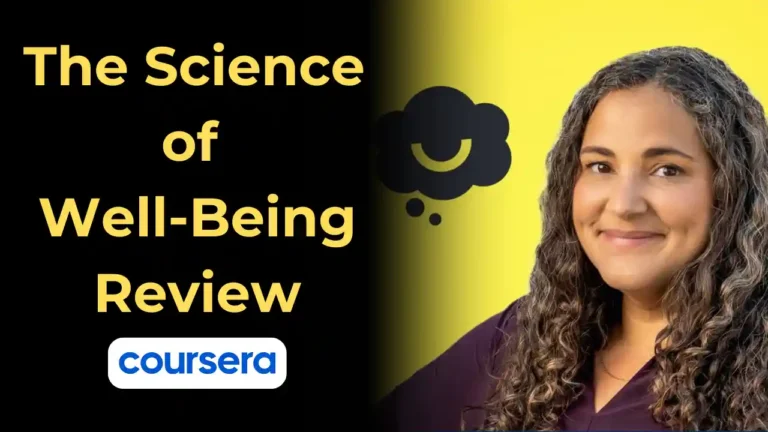Coursera Plus - Get Unlimited Access to 7,000+ Online Courses
Coursera Plus - Get Unlimited Access to 7,000+ Online Courses
Coursera Plus - Get Unlimited Access to 7,000+ Online Courses
Udacity Vs Coursera: Which one Should YOU Choose in 2025?
Disclaimer: This post is NOT sponsored. Some product links are affiliate links which means if you buy through those links, you won’t pay anything extra and we’ll also receive a small commission on a purchase.

“Mastery is not a function of genius or talent. It is a function of time and intense focus applied to a particular field of knowledge” – Robert Greene.
You can master a skill through hard work, but how can you work hard if your chosen learning platform isn’t the right fit for you?
Coursera and Udacity provide fantastic courses, but will they help you master a skill?
Yes, they will.
However, people have different preferences, learning styles, and raw skills. Therefore, you may disagree when someone says a particular website is the best for mastering any skill. Only you can decide what is best for you, but you need all the facts to make an informed decision.
That’s why we will discuss the various components of both these online learning platforms in this Udacity vs Coursera debate. Both platforms have collaborated with reputed companies and universities to create courses. Therefore, deciding between them depends on the flexibility of schedules, the worth of certifications, and the practical training you receive.
About Udacity and Coursera

Udacity is a well-known learning website that helps you develop job-ready skills. You need no prior experience or knowledge to enroll in its courses. That’s what I love the most about Udacity. It is one of the best websites for mastering technical skills. Even its free courses are great for gaining a basic understanding of any tech skill you choose to learn.

Is Udacity better than Coursera? I don’t think so. Coursera is people’s preferred choice for learning new skills, as it provides in-depth content on a wider variety of topics than Udacity. Moreover, its Guided Projects feature and MasterTrack programs make it highly popular.
Comparing Udacity vs Coursera
Coursera has a more academic approach to learning, whereas Udacity focuses on helping you acquire tech skills that you can apply in a job. So, let’s compare Coursera and Udacity to know which website will aid you in attaining your true potential.
Course Offerings
Udacity offers courses on data science, programming and development, AI, Business, Cloud Computing, product management, business, and autonomous systems. Moreover, you can earn Nanodegrees on Udacity. You must complete a collection of courses in the provided learning path to earn a Nanodegree.
For example, to become an AWS machine learning engineer, you must complete Introduction to Machine Learning, Deep Learning Topics with Computer Vision and NLP, Operationalizing Machine Learning on SageMaker, etc.
Coursera has courses in a broader range of categories: data science, IT, AI, personal development, health, language learning, business, computer science, physical science & engineering, math & logic, social sciences, and arts & humanities. Each category is divided into multiple sub-categories.
For example, the social sciences category has sub-categories like international relations, political science, social work, journalism, anthropology, sociology, etc. If you click on international relations, you will get 400+ results. Think about it, if Coursera has so many courses on less popular sub-categories, how many does it have on popular ones?
Let’s discuss the Coursera vs Udacity data science debate. Which platform provides more courses, and how helpful are they? You have 84 courses in the data science category on Udacity. Not all of them are popular, but they are good. Now, let’s look at Coursera. It has 1,824 courses on data science; a staggering number of courses,
None of the courses have a rating of less than 4.5 (based on the ratings of 1k – 48k learners). As you can see, Coursera blows Udacity out of the water in the Coursera vs Udacity battle with its massive amount of high-quality courses on data science.
In addition to learning from thousands of courses on innumerable topics, you can earn degrees from prestigious universities and build your skills quickly with ‘Guided Projects’. That is why more than 92 million users prefer Coursera.
✅ Winner – Coursera
Content Quality
Udacity has great courses with high-quality content; but, so does Coursera.
The best thing about Coursera is it has high-quality content for all its courses, not just the ones on business and technology.
The free courses on both websites are excellent; however, Coursera offers many more free courses than Udacity.
Let’s analyze the Coursera vs Udacity machine learning debate. Udacity only has 68 courses on machine learning, whereas Coursera has 1800+ courses. Even if you filter the results by searching for ‘machine learning for all’, you still get 399 results. How awesome is that? And most courses have a rating of 4.8 or 4.7. That’s as good as it gets. So, Coursera wins this round hands down.
✅ Winner – Coursera
Instructors Experience
A course is only as good as its instructor. That’s why you should always check the reviews before enrolling in a course.
Fortunately, you are in good hands whether you choose Coursera or Udacity to develop or improve a skill.
Industry experts with several years of experience teach the courses on Udacity.
Coursera courses are taught by professors from top universities and experts from bigwigs like Google, Microsoft, and Amazon Web Services.
I prefer Coursera’s instructors as they are good at teaching me without boring me to death. That is no small feat given my short attention span.
✅ Winner – Coursera
Learning Methods
Whether you pick Udacity or Coursera, you will learn predominantly through video lectures.
However, Coursera has an edge in the Udacity versus Coursera battle due to its well-structured quizzes and useful assignments.
Coursera gently nudges you to complete the assignments before the due date; however, you can push the course’s end date if you can’t complete them on time.
Moreover, Coursera has practice quizzes to test your comprehension. This feature dips the scales in favor of Coursera in the Udacity Coursera debate.
✅ Winner – Coursera
Practical Focus
You have to complete projects on both Udacity and Coursera to complete the courses.
The final or the capstone project makes you apply everything you have learned from the course.
Therefore, your practical knowledge is sound, meaning you won’t find the first few weeks at your new job being terrified of your shadow.
However, Udacity is better than Coursera because of the intense project review you receive. If your work is not up to the expected standard, you can try again armed with the knowledge of what went wrong. Coursera relies predominantly on peer-grading which can be useful but is not as effective.
✅ Winner – Udacity
Certification Value
Udacity certifications are not accredited but are recognized by several industries. On the other hand, Coursera certifications are accredited and are highly regarded internationally. Therefore, you can get a job with a certificate from either learning platform, but Coursera certifications may give you an edge.
Why? Because in the Udacity Nanodegree vs Coursera Specializations debate, the latter has the upper hand. That doesn’t mean Udacity certifications are inferior. They prove that you are ready to enter the tech industry.
Besides, Udacity provides CV support on completion of its courses. That is something many people find immensely helpful. However, it’s just not enough to eclipse Coursera’s popularity and usefulness.
✅ Winner – Coursera
Customer Support
Finally, a website that cares about the users and provides good customer support. I am talking about Udacity. No one has complained about how bad the service is. On the other hand, Coursera has a notorious reputation for horrendous customer support. (But I have never encountered any problem with the chatbot or live support.)
Cases of being charged money even after canceling the subscription and not receiving refunds have left several users unsatisfied with the learning platform. Moreover, the users receive standard responses when they finally connect with a customer support agent. Users with unresolved issues rant that Coursera doesn’t care.
Maybe Coursera cares, maybe not. Either way, Udacity wins this round in the Coursera Udacity debate. Still, Coursera remains the most popular learning website. It is mystifying, to say the least. Do only dissatisfied customers leave a review about their experience. If not, how can Coursera’s fame be explained?
✅ Winner – Udacity
Pricing and Value for Money
Udacity’s monthly subscription plan costs $249, whereas the 4-month plan costs $846. Udacity subscription allows you to access all the Nanodegree programs.
The pricing is a deal-breaker for many users as they want to develop new skills at an affordable price.
I blanched when I saw Udacity’s subscription prices.
However, most learners find the cost worth the benefit, as they can access all the courses and Nanodegree programs on the website.

Coursera has affordable subscription plans. The Coursera Plus monthly subscription costs $59, and the annual plan costs $399.
You can purchase individual courses, too. The prices vary depending on the courses. You can audit most courses if you don’t feel like paying for certification.

Coursera Plus is worth it as you can access 7000+ courses once you subscribe. However, degrees and MasterTrack programs are not included in the subscription.
✅ Winner – Both
Community

Coursera Community is wonderful for connecting with fellow learners and posing questions about concepts you don’t understand. You will receive helpful answers from those who have experienced similar problems.

While most learning platforms only get the learners together, Udacity also provides a way to connect with instructors. You can ask your mentor/instructor any question related to the course. They will provide quick solutions.
So, which is better Udacity or Coursera? Udacity’s community is better.
✅ Winner – Udacity
User Interface
Udacity’s UI is good but not great. Enrolling in the courses is a straightforward process; however, the search filters need improvement.
Coursera has an intuitive user interface. Finding the courses you need is easy as the search filters are awesome. Furthermore, each course specifies what skills you will learn and the topics discussed.
In the Coursera Udacity comparison, the former wins brownie points in this round, as, enrolling, subscribing, or purchasing a course on Coursera is simple. The help articles, too, are not troublesome to find. Overall, Coursera’s UI is pleasant and elegant. Udacity has a long way to go before it can match Coursera’s UI design.
✅ Winner – Coursera
User Feedback
To make this comparison even more insightful, I spoke with friends who have tried both learning platforms and reviewed publicly available opinions from users worldwide.
Here’s what they collectively had to say.
Udacity will be more popular if it reduces the prices of subscription plans. Even though you can access all the courses on the platform if you subscribe, the price is still high. Also, it could try creating more courses to compete with Coursera.
Coursera is good enough as it is; however, it should improve its customer support if it wishes to retain its position as the best and most popular online learning platform. Moreover, it should focus on providing more courses in arts to compete with Udemy’s diverse collection of courses.
✅ Winner – Coursera
Who Should Use Udacity?
Udacity is the right platform to learn new tech skills if you want to apply them immediately. Moreover, you retain what you learn longer because of the practical projects you complete as part of the courses. Anyone who wants to hone their programming skills and improve their knowledge of machine learning & deep learning will benefit from using Udacity.
Who Should Use Coursera?
Coursera is for everyone. It doesn’t matter whether you are learning a course out of curiosity, for personal development, or for career growth/change. You can find a course for almost anything on this website. Moreover, you can earn college credits by enrolling in certain accredited courses if you are a student.
Alternatives
Udemy is a great alternative learning platform if you need more variety. MasterClass is a fantastic choice for learning from big celebs. DataCamp, Khan Academy, and Codecademy are good for learning to code. edX, Pluralsight, LinkedIn Learning, and Skillshare are other sites like Coursera and Udacity.
Final Thoughts
Stop mulling over ‘Which is better – Coursera or Udacity?’. Choose Udacity if you want career support after completing the Nanodegrees. Pick Coursera if you want access to a wider range of courses at an affordable price. However, generally speaking, Coursera wins the Udacity vs Coursera battle.
FAQs about Coursera and Udacity
1. What is the difference between Udacity courses and Nanodegrees?
Nanodegree is a collection of paid courses. Each course is considered a unit in the program. You get access to content and projects related to your career if you opt for a Nanodegree. If you opt to learn from individual courses, you won’t get access to career-related projects. However, you will still work on projects required to complete the course.
2. Will I be able to get a job after completing a Udacity Nanodegree?
Udacity claims to help you acquire job-ready skills, but it doesn’t guarantee you will get a job once you complete a Nanodegree. Landing a job depends on several factors.
3. Do I get a course graduation certificate if I complete a Udacity Nanodegree?
Yes, you get a certificate for every Nanodegree you complete provided you have passed all the necessary projects.
4. Are the degrees hosted on Coursera from accredited universities?
Yes, all degree programs on Coursera are provided by accredited institutions. Therefore, the quality of your education is validated.
5. What is the online degree experience like on Coursera?
You have more flexibility to complete your degree, meaning you don’t have to shirk any responsibilities you may have to earn your degree. You can learn at the pace you set.
6. Does Coursera offer scholarships or tuition assistance?
Coursera doesn’t provide any scholarships or tuition assistance. However, you can directly apply for financial aid from the universities that provide your chosen degree programs in most cases.



